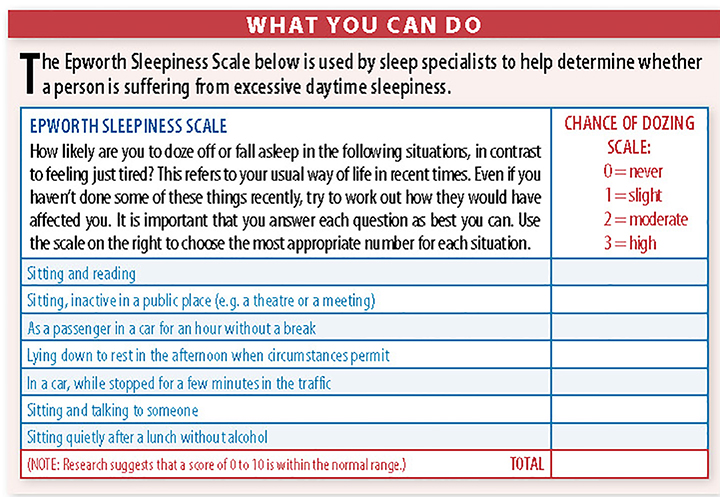Insufficient Sleep May Be Affecting Your Cognition
More than one-third of American adults sleep less than the recommended seven hours per night and are chronically sleep-deprived, according to figures released this year by the Centers for Disease Control and Prevention. The lack of sleep not only increases risk for medical problems, such as high blood pressure, heart disease, diabetes, and obesity, but also for mental problems, such as mood changes and cognitive impairment.
The impact of long-term sleep deprivation on the brain can be serious. In a study reported June 14, 2016 at the SLEEP conference in Denver, 1,374 older adults were surveyed about their sleep habits and underwent cognitive testing and MRI brain scans. Scientists found that, compared with participants who felt rested and alert during the day, those who reported high levels of fatigue or excessive sleepiness had more disturbed sleep, lower cognitive scores, and more medical problems, and showed signs of greater brain atrophy—a risk factor for dementia—than participants without sleep deprivation.
Are You Sleep Deprived?
“Different people require different amounts of sleep, so you have to determine what sleep duration is best for you,” suggests Josna Adusumilli, MD, an MGH neurologist and sleep specialist. “Ideally, you should go to bed when you feel drowsy and wake up naturally without an alarm clock. If you do not feel alert, refreshed and able to function optimally without relying on caffeine, then it’s possible that you need to get more hours of sleep.”
Because not all people who suffer from insufficient sleep are aware that they may be sleep deprived, knowing the symptoms of sleep problems is important. Dr. Adusumilli says that needing to use an alarm clock to wake up, having to use caffeine to stay alert, and sleeping longer on the weekends to make up for lost sleep are important indications that you may not be getting enough sleep.
Other symptoms of sleep insufficiency suggested by the American Academy of Sleep Medicine include the following:
▶ You are forgetful.
▶ You are cranky and irritable.
▶ You are making mistakes.
▶ You get drowsy while driving.
▶ You get sick frequently.
To determine whether your feelings of fatigue and sleepiness are excessive, take the quiz in the What You Can Do section below.
Improving Sleep
If you show symptoms of sleep deprivation, make an effort to get at least seven or eight hours of sleep at night. Then improve your “sleep hygiene.” Strive to: adhere to a regular schedule of bedtime and wake-up time; use your bed only for sleep or sex (e.g., watch TV or read elsewhere); cut down on or eliminate caffeine, alcohol and nicotine; avoid exercise and heavy meals within four hours of bedtime; and exercise regularly.
You might also consider getting a medical assessment to determine whether medical conditions or medications may be at the root of your sleep problems.
Research suggests that a brief nap might take the edge off daytime fatigue. A 20- to 30-minute snooze can increase alertness, boost mood, and improve functioning. But limit nap time: Snoozing too long in the middle of the day can lead to grogginess.
“There are many reasons to feel sleepy during the day, including medical conditions such as obstructive sleep apnea (characterized by temporary interruptions of breathing during sleep and often accompanied by loud snoring) and narcolepsy, medications, and low thyroid levels,” Dr. Adusumilli says. “If you’re getting enough hours of sleep and you still have daytime sleepiness, you should definitely discuss this with your doctor and consider seeing a sleep medicine physician.” MMM
The post Insufficient Sleep May Be Affecting Your Cognition appeared first on University Health News.
Read Original Article: Insufficient Sleep May Be Affecting Your Cognition »
Powered by WPeMatico



